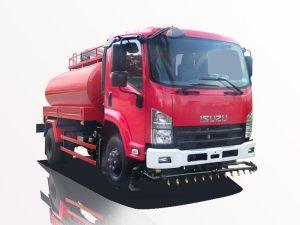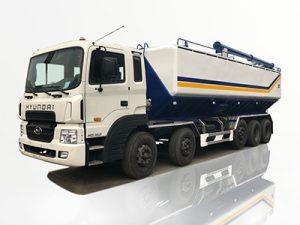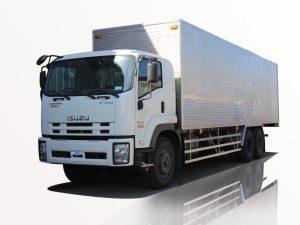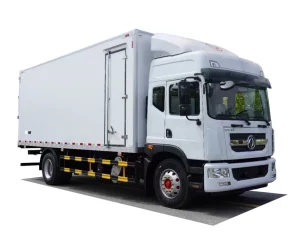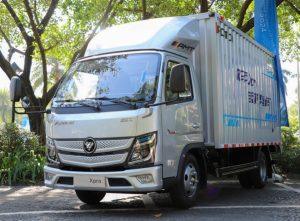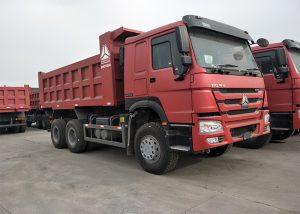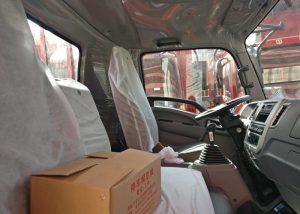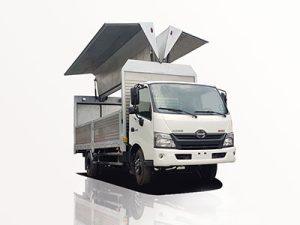Monday to Saturday - 8:00 -17:30
Used Refuse Trucks: A Comprehensive Guide to Selection, Maintenance, and Value
Refuse trucks play an essential role in waste management, ensuring that communities remain clean and sanitary. For many municipalities and waste management companies, opting for used refuse trucks can offer significant cost savings while still providing reliable service. This article explores the benefits, considerations, and detailed tips for purchasing and maintaining used refuse trucks.
Understanding Refuse Trucks
What is a Refuse Truck?
A refuse truck, commonly known as a garbage truck, is a specialized vehicle designed for collecting and transporting waste materials. These trucks are equipped with hydraulic systems that allow for efficient loading and unloading of refuse. They come in various configurations based on the type of waste they handle.
Types of Refuse Trucks
There are several types of refuse trucks, each designed for specific waste management tasks:
- Rear Loader Trucks: Ideal for residential routes, these trucks have a compaction system at the back, allowing operators to load waste from behind.
- Front Loader Trucks: Designed for commercial waste collection, these trucks feature an automatic front-loading system that makes them ideal for bulk waste.
- Side Loader Trucks: Equipped with hydraulic arms, these trucks can collect waste from the side, enabling efficient collection without requiring the driver to exit the vehicle.
- Roll-off Trucks: These trucks are designed to transport large, heavy containers, making them ideal for construction sites or large-scale waste disposal.
Benefits of Purchasing Used Refuse Trucks
Cost Savings
The most apparent benefit of purchasing used refuse trucks is the significant savings compared to new models. Many municipalities operate within tight budgets, making used trucks a practical solution for maintaining services without overspending.
Reduced Depreciation
New trucks lose value quickly due to depreciation. Buying a used refuse truck means that the bulk of the depreciation has already occurred, allowing for better investment value over time.
Wide Selection
The market for used refuse trucks offers a diverse selection, with various models, configurations, and conditions available. This variety enables buyers to find a truck that meets their specific needs and budget.
Factors to Consider When Buying Used Refuse Trucks
Condition of the Truck
Inspect the truck thoroughly to determine its physical and mechanical condition. Important elements to assess include:
- Engine and Transmission: Check for any signs of leaks and ensure smooth operation.
- Compaction System: Test the hydraulic system to confirm it works effectively.
- Brakes and Tires: Verify the condition of brakes and tires, as they are critical for safety and performance.
Maintenance History
Request maintenance records from the seller. A well-maintained truck indicates that it was properly cared for, reducing the likelihood of potential issues after purchase.
Mileage and Usage
Evaluate the truck’s mileage and previous usage. Trucks with higher mileage may have more wear and tear, but usage in less demanding environments may have contributed to lower potential damage.
Compliance with Regulations
Ensure that the refuse truck adheres to local, state, and federal regulations regarding emissions and safety standards. Trucks that do not comply may require additional investments to bring them up to standard.
Warranty and Support Options
Consider whether the seller offers any warranties or service contracts. These protections can mitigate risks involved with buying used equipment and provide peace of mind.
Financing Options for Used Refuse Trucks
Purchasing Outright
If funds are available, purchasing the truck outright eliminates debt and financing costs, making it a straightforward option for many buyers.
Leasing Options
For organizations looking for more flexibility, leasing might be an advantageous alternative. While it usually involves lower upfront costs, it’s important to consider long-term expenses and whether the organization will own the truck at the end of the lease term.
Loans and Financing Plans
Many banks and financial institutions offer loans specifically for buying used commercial vehicles. Be sure to compare interest rates and terms to find the best financing solution.
Maintenance Tips for Used Refuse Trucks
Regular Inspections
Perform regular inspections to catch potential issues early. Key components to check on a routine basis include:
- Fluid levels (e.g., oil, hydraulic fluid)
- Electrical systems
- Brake systems
- Compaction mechanisms
Scheduled Maintenance
Follow the manufacturer’s recommendations for maintenance schedules. Staying on top of regular servicing helps avoid major repairs and extends the truck’s lifespan.
Cleaning and Upkeep
Regularly cleaning the truck helps prevent rust and wear. Ensure the compaction systems are cleared of debris and that the exterior and interior are kept tidy.
Environmental Considerations
Emissions Standards
Used refuse trucks should meet current emissions standards, which reduce harmful pollutants. Check local regulations to inform your purchasing decisions and consider retrofitting older models if required.
Fuel Efficiency
Investing in more fuel-efficient models can lead to long-term savings. Explore trucks with advanced technologies that reduce fuel consumption and emissions.
Examples of Popular Used Refuse Truck Brands
Freightliner
Freightliner offers a range of reliable refuse trucks known for durability and performance, particularly in municipal applications.
Peterbilt
Peterbilt trucks are often favored for their upscale features and strong performance, making them popular among waste management companies.
International
International trucks are recognized for their spacious cabs and user-friendly operation, catering to both small and large waste collection needs.
Where to Buy Used Refuse Trucks
Dealerships
Many dealerships specialize in commercial vehicles and may offer a selection of used refuse trucks. This can provide a level of assurance regarding the quality of the vehicle.
Auction Sites
Online auction sites can offer excellent deals on used refuse trucks. However, it’s important to thoroughly review the details and understand the auction process before bidding.
Online Classifieds
Websites like Craigslist or specialized platforms focus on commercial vehicle sales. These can provide direct connections to sellers but require more caution regarding verification.
Frequently Asked Questions (FAQs)
1. How long do used refuse trucks typically last?
Used refuse trucks can last anywhere from 10 to 15 years on average, depending on usage, maintenance, and manufacturer quality.
2. What are the main maintenance issues for used refuse trucks?
The most common issues include hydraulic system failures, brake problems, and engine wear. Regular maintenance can help mitigate these issues.
3. Can I modify a used refuse truck?
Yes, many modifications can be made to suit specific needs, including customizing loading mechanisms or adding safety features. However, ensure modifications comply with regulatory standards.
4. Are used refuse trucks environmentally friendly?
Used refuse trucks can be environmentally friendly if they meet emissions standards and are maintained properly. Additionally, retrofitting older trucks can improve their efficiency.
5. What financing options are available for purchasing used refuse trucks?
Financing options include outright purchases, loans, and leasing arrangements. Evaluate your organization’s budget and needs to choose the best option.
6. How do I ensure that I’m getting a good deal on a used refuse truck?
Conduct thorough inspections, verify maintenance records, compare prices from multiple sources, and consider getting a mechanic’s opinion before finalizing a purchase.


